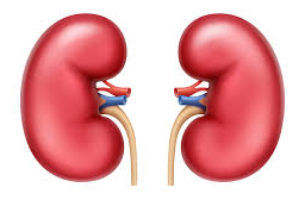Do hospitals ever lose your medical records and information? Yes, all the time. Hospitals quite often lose some or all of your records, when they change computer systems. GPs are better at keeping information. Is there a single NHS medical record? Unfortunately there is no single complete NHS medical record. But you can see parts […]
Read MoreWhat is a high blood creatinine level? Blood creatinine > 120 mcmol/L is above normal and a concern – and may indicate chronic kidney disease (CKD) Blood creatinine > 150 mcmol/L is raised and usually problem – i.e. CKD (or AKI) Blood creatinine > 200 mcmol/L is high and always a problem – it indicates […]
Read MoreWhat is a low blood GFR level? GFR < 60 ml/min is a low blood GFR level – and a concern, and may indicate chronic kidney disease (CKD) GFR <45 ml/min is CKD – and a problem GFR <30 ml/min is significant CKD – and a serious problem GFR <15 ml/min is kidney failure – […]
Read MoreWhat is pre-eclampsia? Pre-eclampsia is a complication of pregnancy characterised by: High Blood Pressure: Blood pressure levels exceeding 140/90 mmHg after 20 weeks of pregnancy Protein in the Urine: Excess protein in the urine (proteinuria; indicating kidney damage). Potential damage to organs: Including the liver, kidneys and brain. 5 key points for expectant mothers Risk […]
Read MorePregnancy: 10 FAQs and answers In this article we will answer 10 FAQs about pregnancy. Question 1: How long does pregnancy typically last? Answer: Pregnancy typically lasts around 40 weeks, divided into three trimesters: weeks 1-12 (first trimester), weeks 13-26 (second trimester) and weeks 27-40 (third trimester). Question 2: What are the earliest signs of […]
Read More10 pre-eclampsia myths Pre-eclampsia is a complication of pregnancy characterised by high blood pressure, protein in the urine, and potential damage to organs such as the liver, kidneys and brain. Despite its prevalence, affecting up to 5% of pregnancies globally, pre-eclampsia remains shrouded in misconception. Several celebrities like Kim Kardashian, Mariah Carey, or Adriana Lima […]
Read MoreWhat are the 10 most common water tablets (diuretics)? In this article, we will describe what are the 10 most common water tablets (diuretics). Let’s start with the basics. What are diuretics? Diuretics, sometimes called water tablets, help rid your body of water and salt (sodium). They are used for diseases when there is too […]
Read MoreWhat are the 10 most common steroid drugs? We will describe what are the 10 most common steroid tablets? But a bit of background first. Prednisolone – the commonest steroid tablet What are steroid tablets? Steroid tablets, also called corticosteroid tablets, are a type of anti-inflammatory medicine used to treat a range of conditions. Inflammatory […]
Read MoreWhat causes pre-eclampsia? Pre-eclampsia is a complication of pregnancy characterised by high blood pressure, protein in the urine and potential damage to organs such as the liver, kidneys and brain. It is common(ish) and affects approximately 5% of pregnancies. Despite extensive research, the exact cause of pre-eclampsia remains unclear. At worst it can worsen […]
Read More10 pre-eclampsia facts In this article, we will describe in depth 10 facts about pre-eclampsia. It is mainly for health professionals. Key Points Pre-eclampsia is a complication of pregnancy characterised by high blood pressure, protein in the urine and organ dysfunction. It affects approximately 5% of pregnancies. Pre-eclampsia can start any time after the 20th […]
Read More




